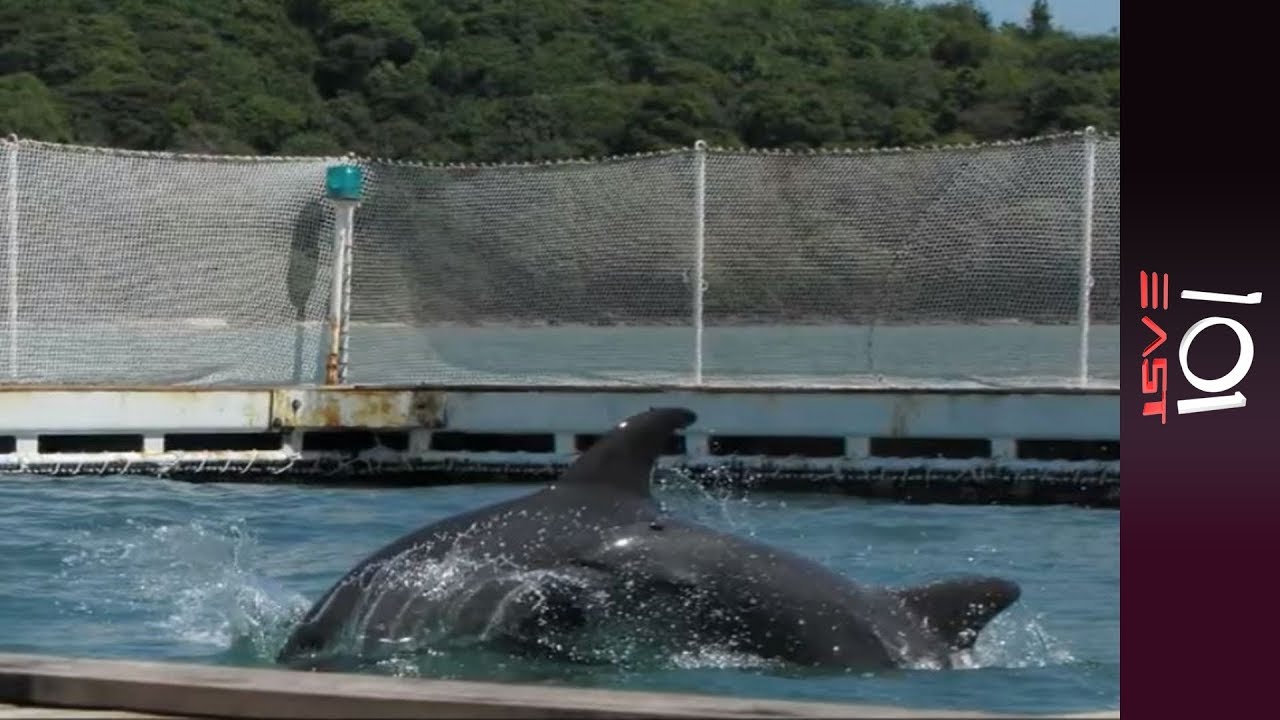🐬 The Dolphin Hunters: Slaughter in the Solomon Islands | 101 East
In a remote Pacific paradise in the Solomon Islands, a village continues a centuries-old tradition that has sparked outrage around the world. They hunt and kill dolphins, often hundreds at a time.
101 East’s Drew Ambrose is the first television reporter to meet the community of Fanalei since they revived the controversial practice in 2013.
The village tribesmen say they hunt the marine mammals for their meat and teeth to pay for wedding dowries, easing the impact of rising sea levels on crops and livelihoods.
For two years, the Earth Island Institute, an environmental charity, persuaded villagers to stop hunting dolphins by promising direct cash payments and alternative work programmes worth up to $400,000 to Fanalei and two other villages, a huge windfall in the Solomons.
But the deal ended when the Institute alleged that the majority of the funds provided went missing – triggering a massive fallout out between the conservation group and the hunters.
Two of the three villages involved in the deal say that the Earth Island Institute owes them money. The Earth Island Institute says that they did pay, but representatives of the village who live in the capital Honaira did not pass the money onto the villagers.
The feud culminated in the slaughter of 1,600 dolphins last year, with the Earth Island Institute describing the hunt as an act of extortion.
Local conservationists say dolphin hunting may have once been part of the villagers’ traditional culture, but that the animal is now viewed as a money earner in a country considered one of the poorest in the Pacific region.
In the past, dolphins have also been captured and sold to aquariums and marine parks overseas. A healthy dolphin can fetch as much as $100,000.
Some of those dolphins have died from stress in captivity while being transported to destinations as far as Dubai, Singapore and Mexico.
Despite a current ban on the live export of dolphins, some traders say it is a less barbaric and more lucrative trade than killing them in the hunt. But some of the hunters disagree, saying it is better for these ocean-roaming, intelligent mammals to be hunted in the wild than be forced to spend a lifetime in captivity without their pods.
With other tribes considering the possibility of hunting again this year, the government says it may introduce a quota system restricting the number of dolphins hunted and killed.
Even some Fanalei villagers concede that slaughtering them en masse means too many dolphins die, and sometimes the meat simply rots.
More from 101 East on:
YouTube – http://aje.io/101eastYouTube
Facebook – http://facebook.com/101east
Twitter – http://twitter.com/aj101east
Instagram – http://instagram.com/aj101east
Website – http://aljazeera.com/101east




![Private: [ID: fBgycpxLWOA] Youtube Automatic](https://nezha.pro/wp-content/uploads/2023/09/private-id-fbgycpxlwoa-youtube-a-236x133.jpg)
![Private: [ID: 5pjnizqXy-g] Youtube Automatic](https://nezha.pro/wp-content/uploads/2023/08/private-id-5pjnizqxy-g-youtube-a-236x133.jpg)
![私密內容: [ID: EKY1OChHTa0] Youtube Automatic](https://nezha.pro/wp-content/uploads/2023/08/id-eky1ochhta0-youtube-automati-236x133.jpg)
![私密內容: [ID: 4UFe4tRMZ0Y] Youtube Automatic](https://nezha.pro/wp-content/uploads/2023/08/id-4ufe4trmz0y-youtube-automati-236x133.jpg)
![私密內容: [ID: pkl8HVDagHo] Youtube Automatic](https://nezha.pro/wp-content/uploads/2023/08/id-pkl8hvdagho-youtube-automati-236x133.jpg)
![私密內容: [ID: 5daehHaqpeo] Youtube Automatic](https://nezha.pro/wp-content/uploads/2023/07/id-5daehhaqpeo-youtube-automati-236x133.jpg)
![私密內容: [ID: XxMUOi61Irs] Youtube Automatic](https://nezha.pro/wp-content/uploads/2023/07/id-xxmuoi61irs-youtube-automati-236x133.jpg)
![Private: [ID: uY5SX8c8kWI] Youtube Automatic](https://nezha.pro/wp-content/uploads/2023/10/private-id-uy5sx8c8kwi-youtube-a-236x133.jpg)
![私密內容: [ID: tobguo86Ju4] Youtube Automatic](https://nezha.pro/wp-content/uploads/2023/07/id-tobguo86ju4-youtube-automati-236x133.jpg)
![私密內容: [ID: 00P3TEP9Tx0] Youtube Automatic](https://nezha.pro/wp-content/uploads/2023/06/id-00p3tep9tx0-youtube-automati-236x133.jpg)